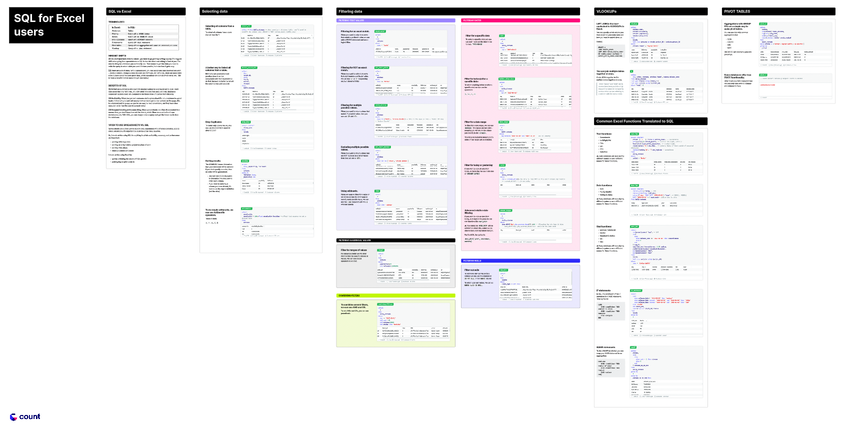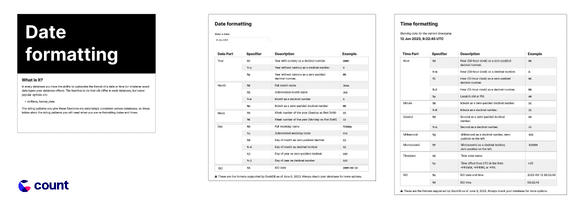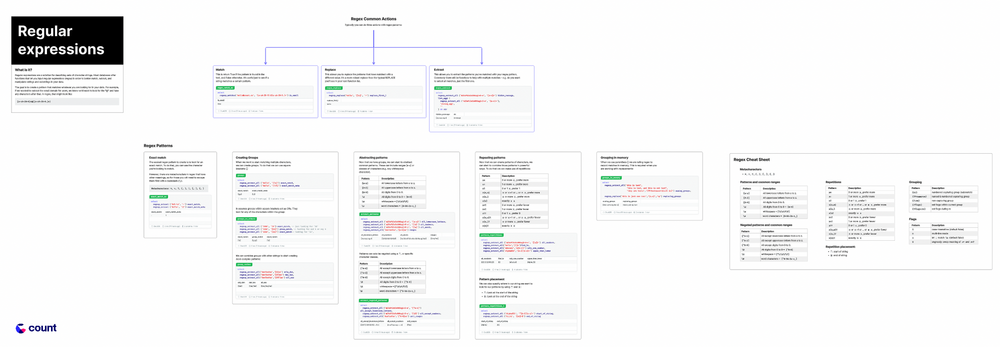The Ultimate SQL Guide
Understanding SQL remains the best way to work with data in our organizations. For a stakeholder, just being able to read and understand SQL queries can completely change how they work. Instead of only working with static, flat dashboards, they can work more closely with the data team, ask more probing questions and be a smarter consumer of the data they do receive.
But stakeholders that can write their own queries have ultimate autonomy and agency. For those that want to learn SQL there are certainly many resources available to learn, but most of them are:
- static,
- out-dated,
- overly technical
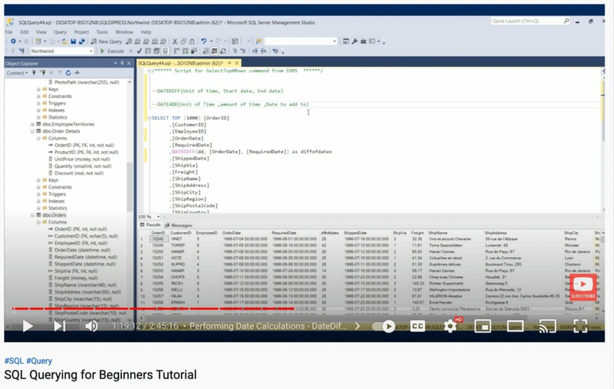
This guide is a different approach for those wanting to learn SQL. The guide contains live data and queries and explains concepts spatially and offers pragmatic advice instead of overly technical explanations.
It includes:
- an introduction to databases, and the basics of the SELECT statement
- how to write a query, including syntax and best practices from well-known data teams
- an introduction to core concepts like selecting columns, filtering rows, aggregations, and joins with live data
- advanced concepts like CTEs, window functions, and nested data (e.g Arrays)
- a set of sample questions to test your knowledge at each point
- a guide for Excel users learning SQL
- downloadable one-pagers for regular expressions and date formatting syntax
It was made with three people in mind:
- someone brand new to SQL and wants to learn the basics
- someone new to SQL wanting to upskill themselves
- people who use SQL every day and may need to refresh on certain concepts (like regular expressions) from time-to-time
How to use it:
You can see the full canvashere.
If you're on mobile, then I advise waiting to view the full canvas until you're on your desktop. The rest of this post has images of each part of the guide to view in the meantime though.
To answer the practice questions or download the one-pagers you can copy the canvas into your workspace and have your own editable version.
Introduction
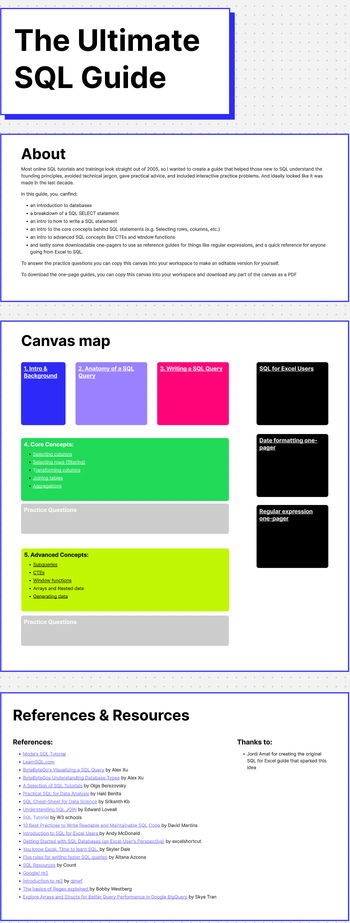
Background
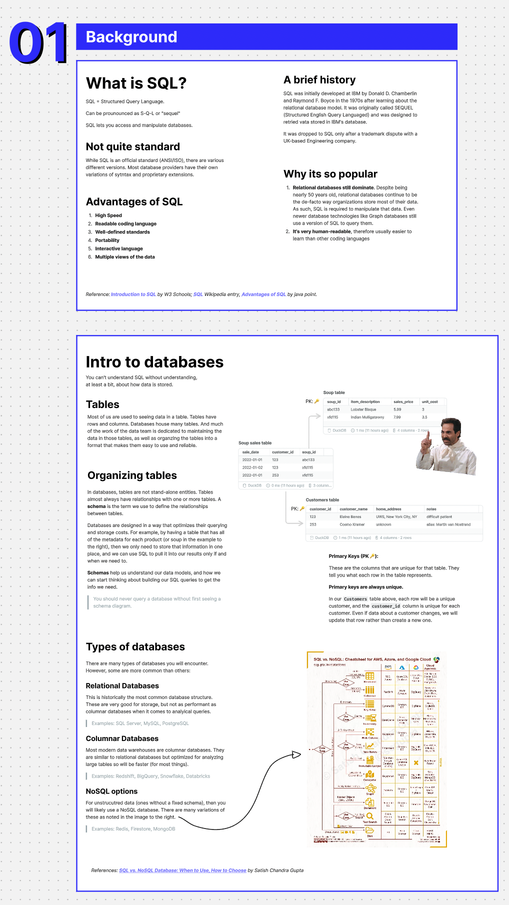
Anatomy of a SQL Query
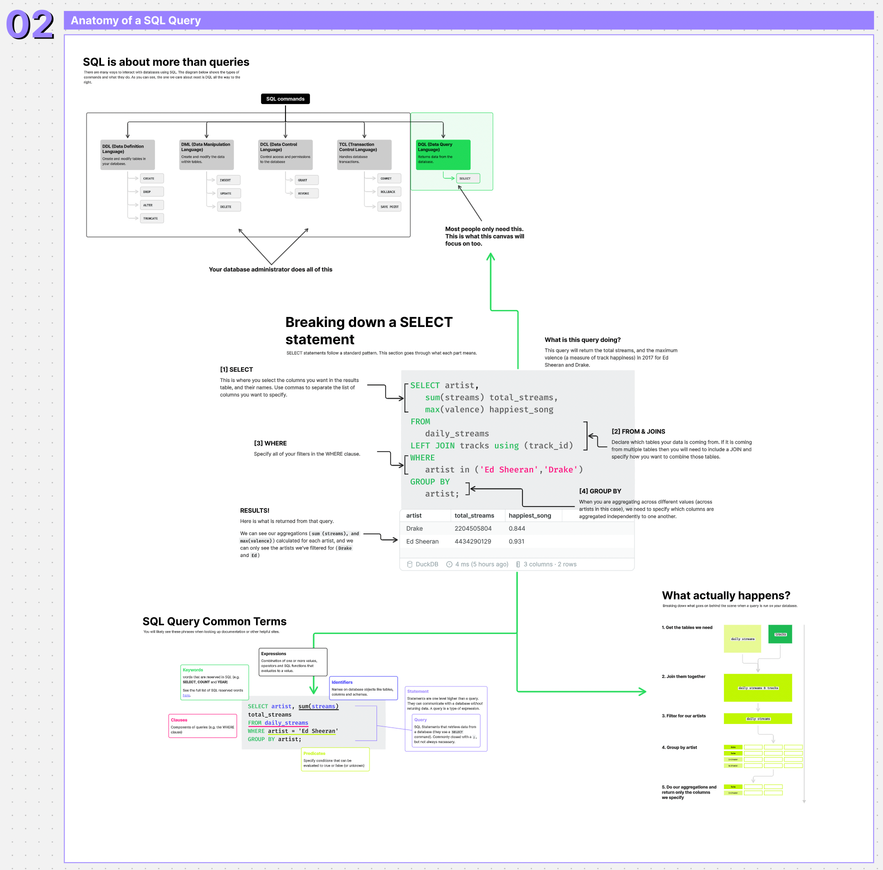
Writing a SQL Query
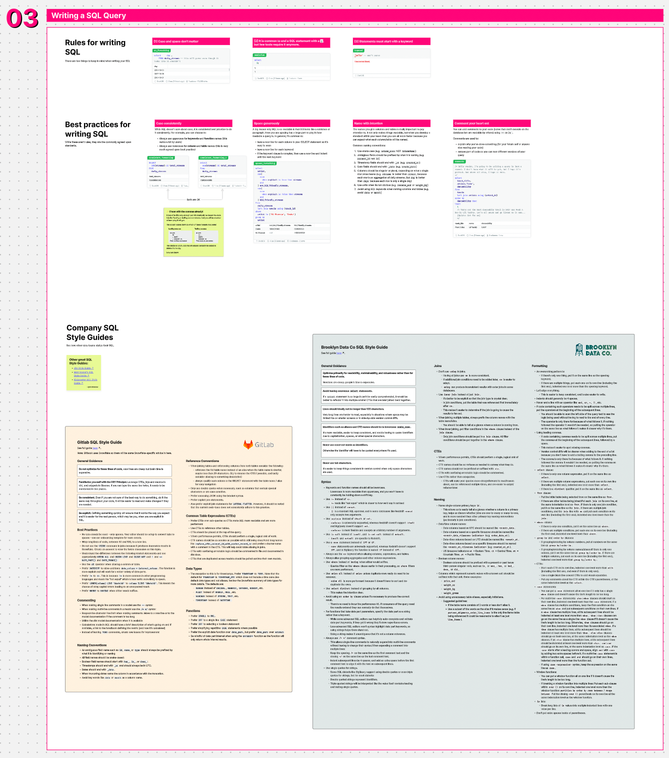
SQL Core Concepts
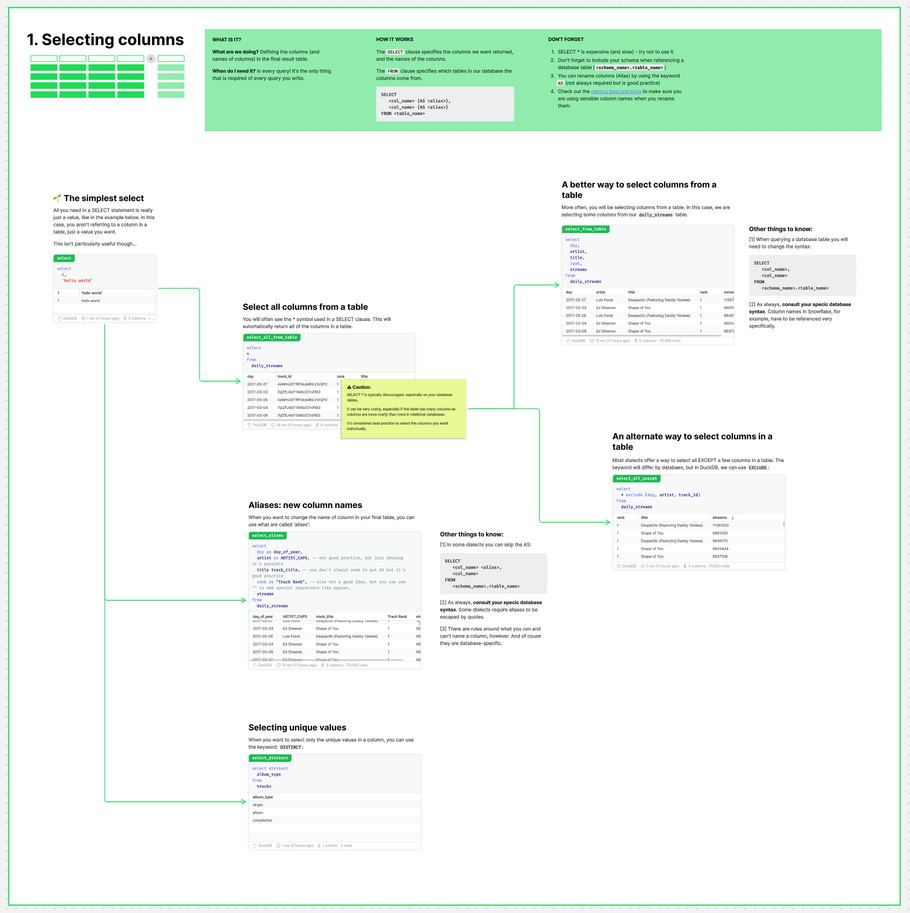
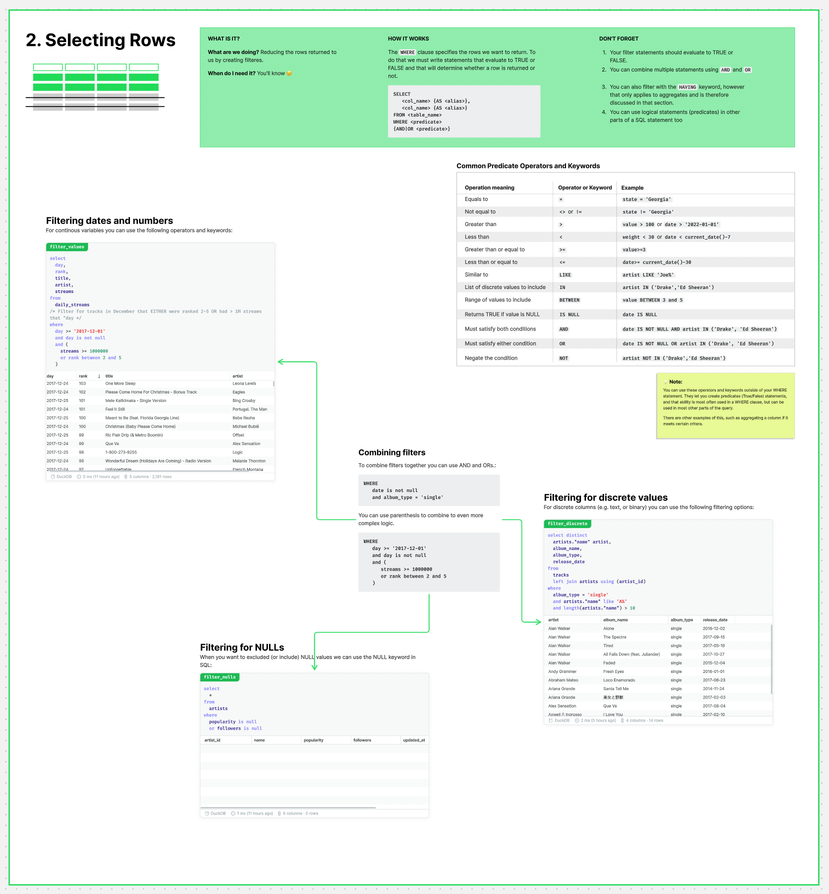
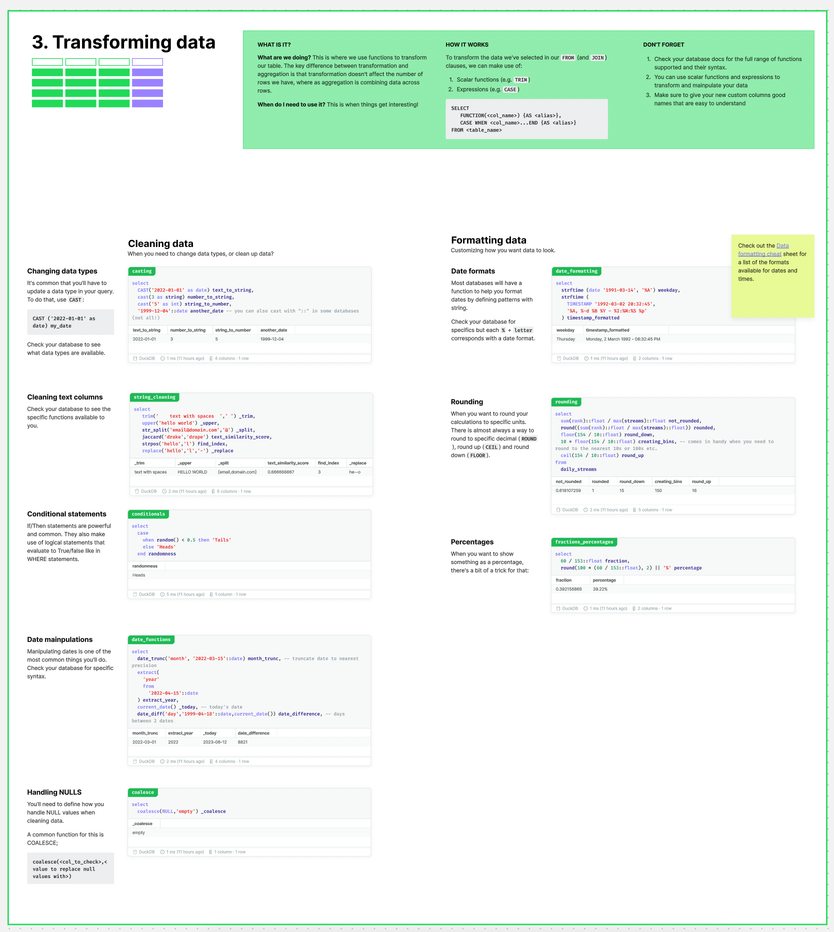
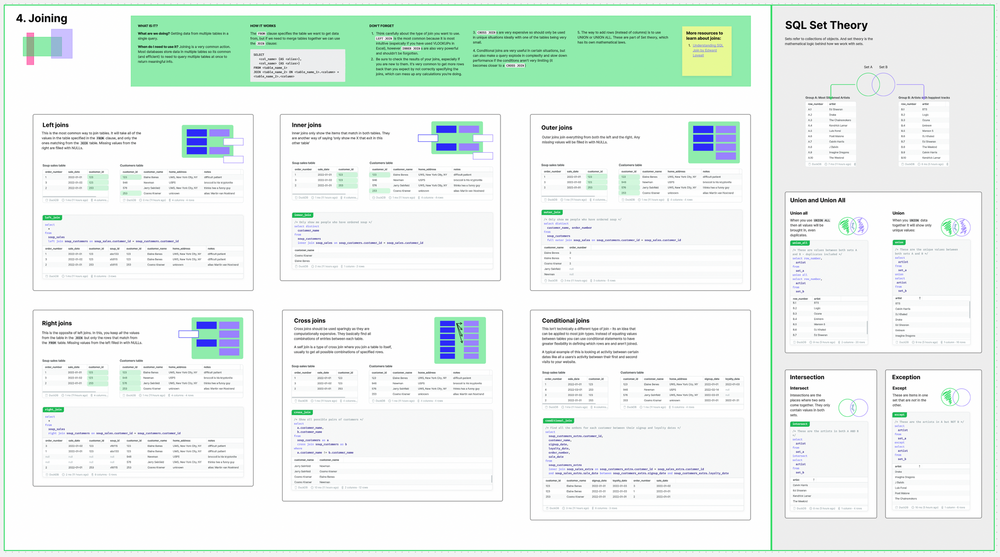
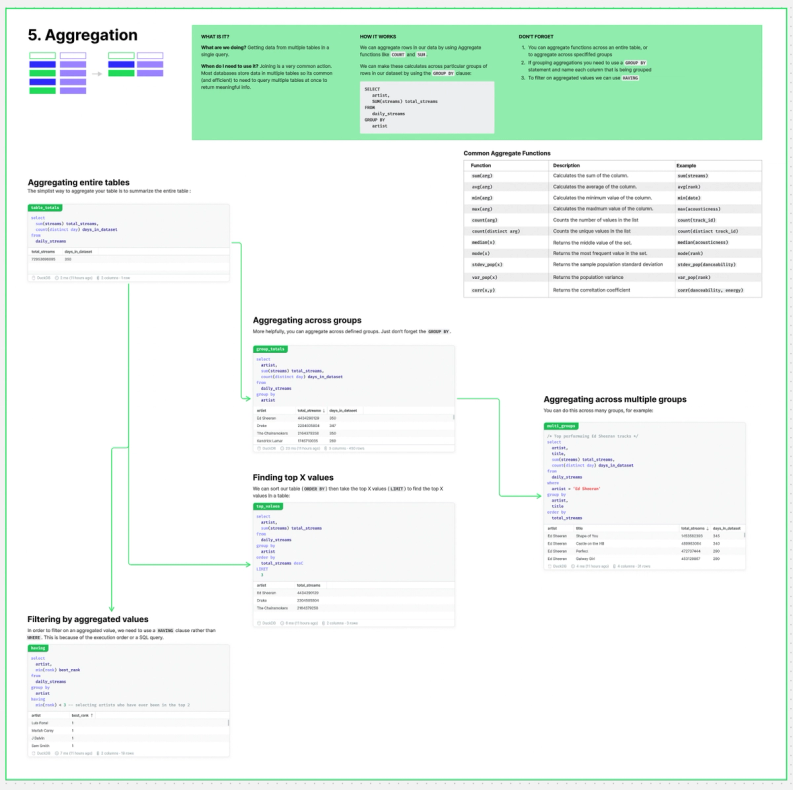
SQL Advanced Concepts
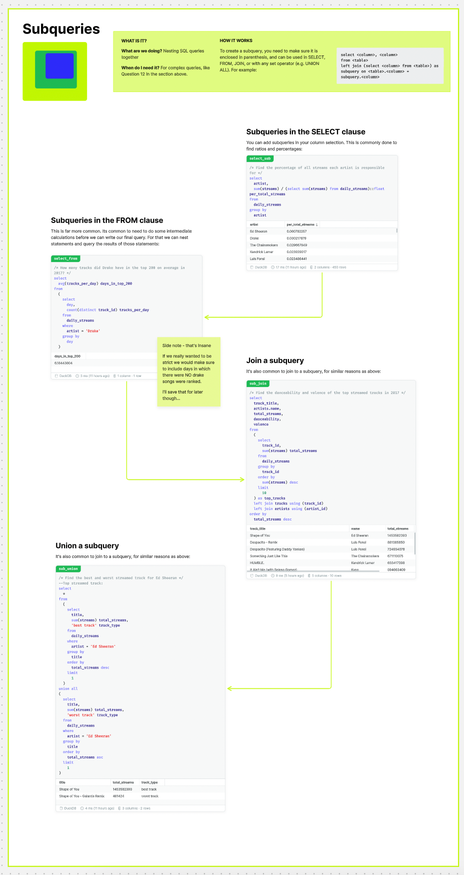
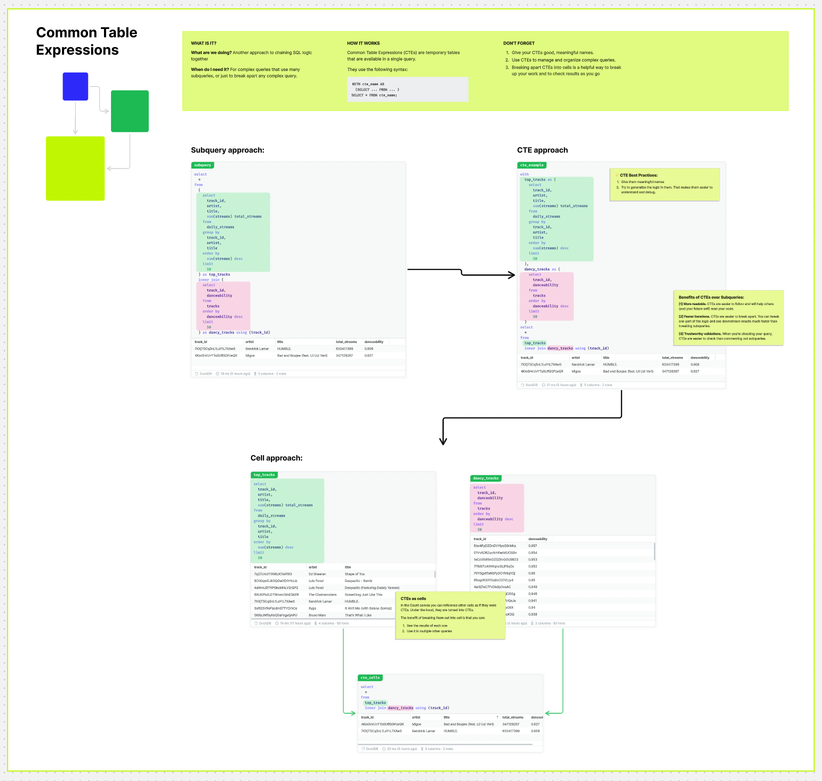
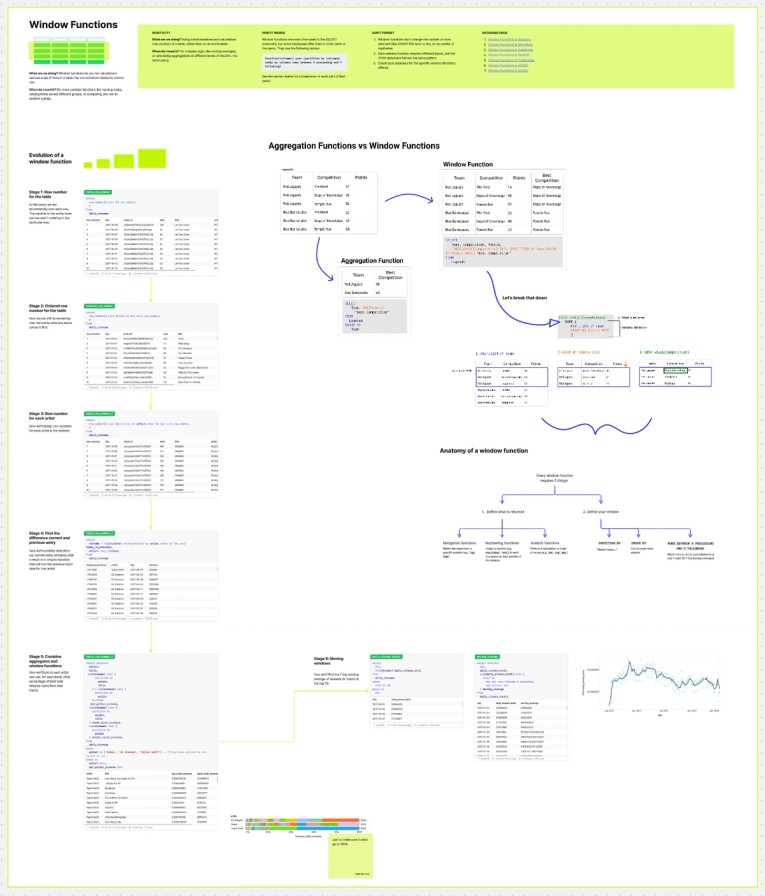
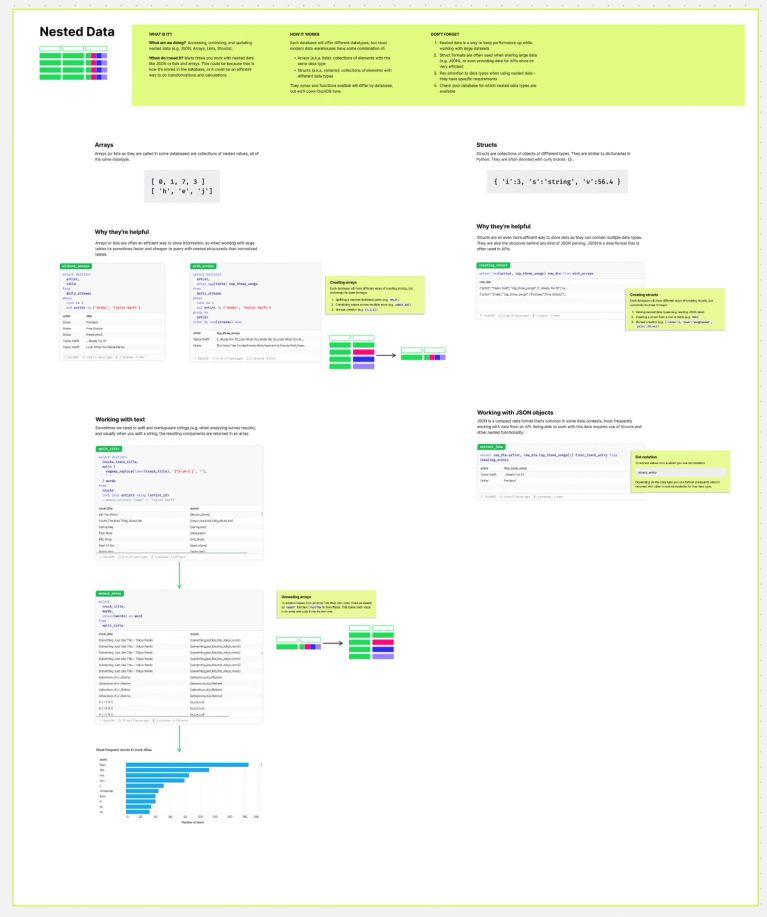
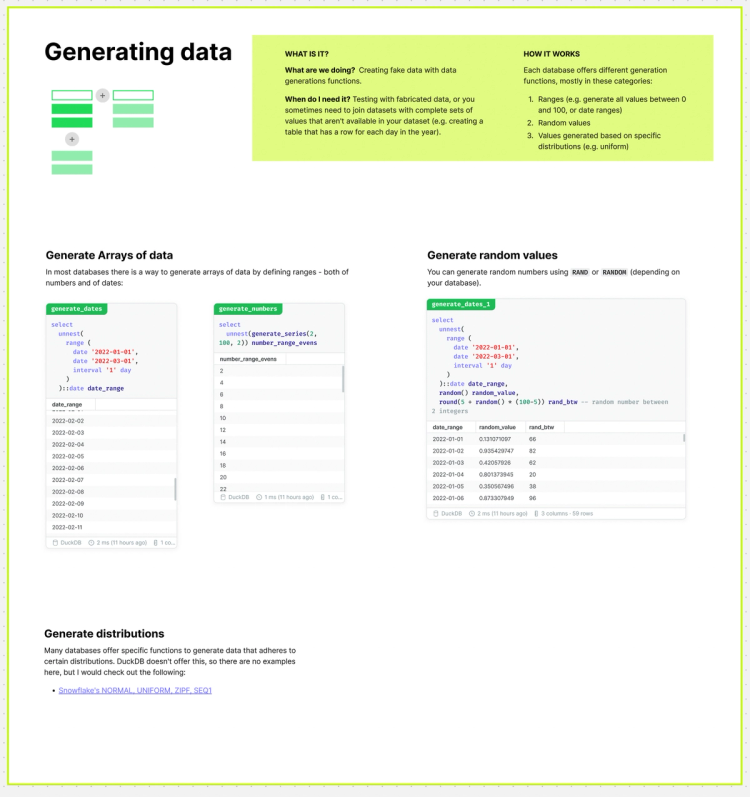
Downloadable One pagers
